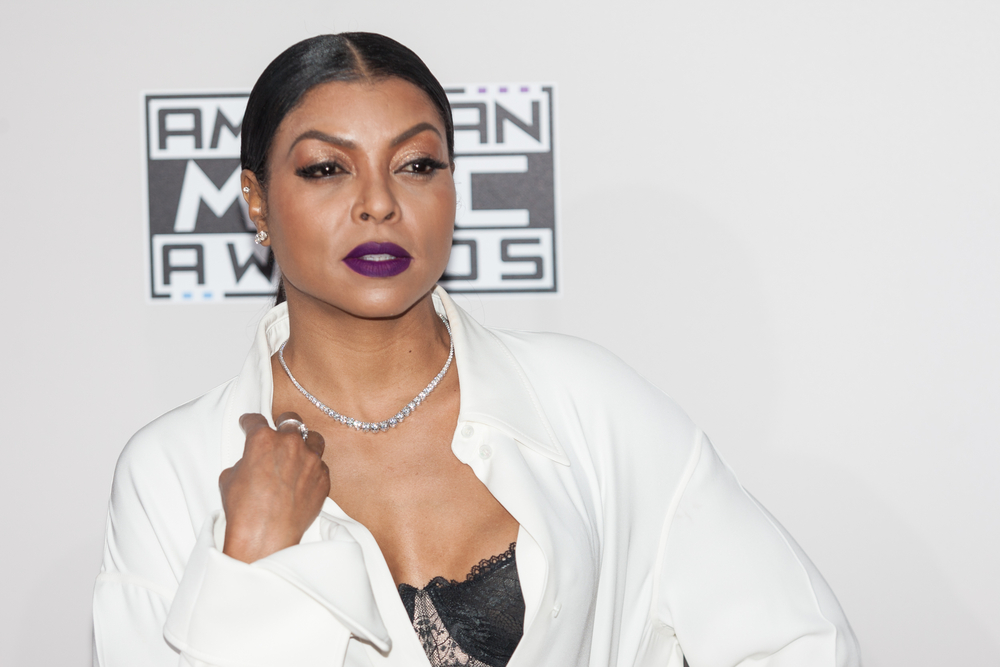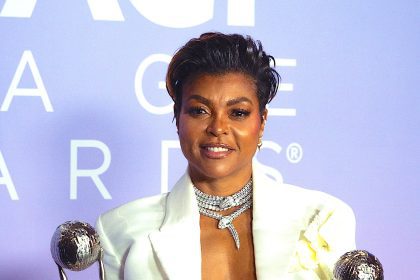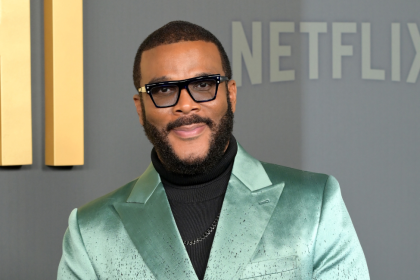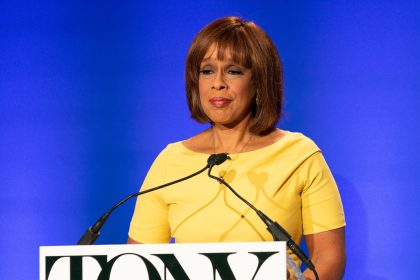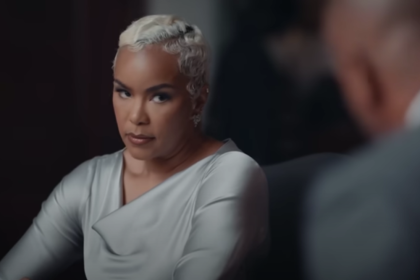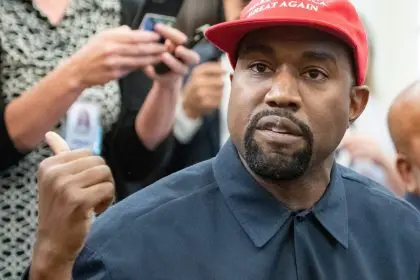Sometimes the most damaging lies are the ones designed to pit successful women against each other, and Taraji P. Henson just delivered a masterclass in how to shut down that nonsense with grace, intelligence, and devastating clarity. The actress recently took time during her press tour for the film Straw to address persistent rumors about a supposed feud with Oprah Winfrey, and her response revealed something much more sinister than typical celebrity gossip.
Instead of just denying the rumors and moving on, Taraji dug deeper into why these particular lies were being spread and who might benefit from creating division between two of the most powerful Black women in entertainment. Her analysis of the situation exposes the calculated nature of how misinformation gets weaponized in Hollywood, particularly when it involves successful Black artists.
What makes Taraji’s response so powerful is how she connected these specific rumors to broader patterns of how Black women get torn down in the entertainment industry. This wasn’t just about defending her relationship with Oprah, it was about exposing the tactics used to undermine Black success and solidarity.
The friendship that never needed defending
The reality of Taraji and Oprah’s relationship is exactly what you’d expect from two intelligent, successful women who respect each other’s work and contributions to the industry. They stay in touch, support each other’s projects, and maintain the kind of professional and personal connection that develops naturally between people who’ve navigated similar challenges.
Taraji shared that Oprah had recently texted her with praise for her performance in Straw, which is exactly the kind of supportive interaction that happens between colleagues who genuinely appreciate each other’s talent. There was no drama to create, no tension to exploit, and no conflict to manufacture.
The supposed feud existed only in the imagination of people who wanted to create division where none existed. Taraji’s affection and respect for Oprah was never in question for anyone who actually knew them or paid attention to their interactions over the years.
What’s particularly telling is how Taraji emphasized that she’s never been someone who drags other women, especially Black women. Her track record of supporting and uplifting her peers makes the feud rumors even more ridiculous when you consider her actual history and values.
The calculated campaign to destroy Black success
Here’s where Taraji’s analysis gets really interesting and reveals something much darker than typical celebrity gossip. She suggested that the feud rumors were part of a deliberate campaign designed to hurt The Color Purple, a film featuring a predominantly Black cast that represented significant opportunity and representation in Hollywood.
Think about the timing and targeting of these rumors. They emerged around discussions of The Color Purple, a project that showcased Black talent, told Black stories, and had the potential to demonstrate the commercial viability of Black-centered entertainment. Creating division between key figures associated with the project could undermine its success and impact.
The strategy is as old as it is effective. When you can’t attack a project directly without appearing racist or discriminatory, you create internal drama and conflict that distracts from the actual work. You pit successful people against each other so they’re fighting among themselves instead of focusing on their shared goals.
Taraji’s willingness to call out this pattern shows remarkable courage and insight. Most celebrities would just deny the rumors and move on, but she was willing to analyze and expose the underlying motivations behind the misinformation.
How pay disparity discussions got weaponized
The feud rumors apparently gained traction during broader conversations about pay disparity in Hollywood, which makes perfect sense as a timing choice for anyone trying to create division. When actors are discussing systemic problems with compensation and representation, it’s convenient to frame those discussions as personal conflicts between individuals.
Taraji has been vocal about pay equity issues throughout her career, using her platform to highlight how Black actresses often face significant compensation gaps compared to their white counterparts. These are legitimate systemic issues that deserve attention and discussion.
But when those discussions get twisted into personal feuds between specific individuals, the focus shifts away from industry-wide problems and onto interpersonal drama. Instead of talking about systemic change, everyone starts talking about who said what about whom.
The genius of using pay disparity discussions as a launching point for feud rumors is how it weaponizes important conversations about justice and equity. It turns advocates for change into apparent enemies of each other, undermining their collective power to create meaningful reform.
The solidarity that threatens certain people
What really seems to bother some people about successful Black women in entertainment is when they support each other instead of competing. The image of Taraji and Oprah working together, celebrating each other’s successes, and maintaining genuine friendship represents something that challenges certain narratives about how Black women supposedly relate to each other.
There’s a long history of media trying to create competition and conflict between successful Black women, whether in entertainment, politics, or other fields. The assumption seems to be that there’s only room for one at the top, so they must all be fighting each other for that single spot.
When Black women refuse to play that game and instead support each other’s success, it disrupts the entire narrative. Suddenly you have multiple successful Black women working together, creating opportunities for others, and demonstrating that collaboration is more powerful than competition.
Taraji’s emphasis on being supportive of other Black women, particularly through her mental health advocacy work, shows how she’s actively working to create more opportunities and support systems rather than trying to hoard success for herself.
The mental health advocate who practices what she preaches
One of the most compelling aspects of Taraji’s response to these rumors is how it reflects her broader commitment to mental health and wellness, particularly for Black women. Through her Boris Lawrence Henderson Foundation, she’s been working to break down stigmas and create support systems for people who need them.
Her approach to addressing the feud rumors demonstrates the same principles she advocates through her foundation work. Instead of responding with anger or defensiveness, she provided clarity, context, and education about what was really happening and why it mattered.
The way she handled this situation serves as a model for how to respond to misinformation and attempts to create division. She didn’t take the bait or get drawn into drama, but she also didn’t ignore the situation or let lies stand unchallenged.
Her response shows how mental health advocacy isn’t just about providing resources and support systems, it’s also about modeling healthy ways to handle conflict, misinformation, and attempts to manipulate your relationships and reputation.
What Oprah’s response reveals
Oprah’s own denial of the feud rumors adds another layer of credibility to Taraji’s analysis of the situation. When someone of Oprah’s stature and influence takes time to publicly address gossip, it suggests she recognizes the potential damage that false narratives can cause.
Oprah’s statement about being a champion of The Color Purple reinforces Taraji’s point about the timing and targeting of these rumors. The film represented significant investment and opportunity for Black talent, and both women had reasons to want it to succeed rather than being undermined by manufactured drama.
The fact that both women felt compelled to address these rumors publicly suggests they understood the broader implications beyond their personal reputations. They recognized that allowing false narratives about division to persist could harm other Black women and projects in the industry.
Their coordinated response also demonstrates exactly the kind of solidarity and mutual support that the rumors were designed to undermine. Instead of being divided by the misinformation, they came together to address it directly and protect their shared interests.
The lesson that extends beyond Hollywood
Taraji’s handling of these feud rumors offers important lessons that extend far beyond celebrity gossip or entertainment industry politics. Her response provides a blueprint for how to address misinformation that’s designed to create division and undermine collective success.
The first lesson is about recognizing when rumors and gossip serve strategic purposes rather than just reflecting idle curiosity or entertainment. Not all misinformation is random, some of it is deliberately created and spread to achieve specific goals.
The second lesson involves responding to false narratives with analysis and context rather than just denial. By explaining why these particular rumors might have been created and who they served, Taraji helped people understand the broader patterns and motivations involved.
The third lesson focuses on maintaining solidarity and mutual support even when people are trying to create division. Both Taraji and Oprah refused to let outside forces damage their relationship or shared goals.
The truth that protects everyone
Taraji P. Henson’s response to the fake feud rumors with Oprah Winfrey represents more than just celebrity damage control. It’s a masterclass in how to recognize, analyze, and counter misinformation designed to undermine Black women’s success and solidarity in entertainment.
Her willingness to expose the calculated nature of these rumors and connect them to broader patterns of industry manipulation shows remarkable courage and insight. By refusing to let false narratives stand unchallenged, she’s protecting not just her own reputation but also the interests of other Black women who might face similar attacks.
The incident also demonstrates how successful people can use their platforms to educate others about manipulation tactics while modeling healthy responses to misinformation. Instead of being divided by lies designed to hurt them both, Taraji and Oprah showed how solidarity and mutual support remain the most powerful responses to attempts at creating artificial division.

